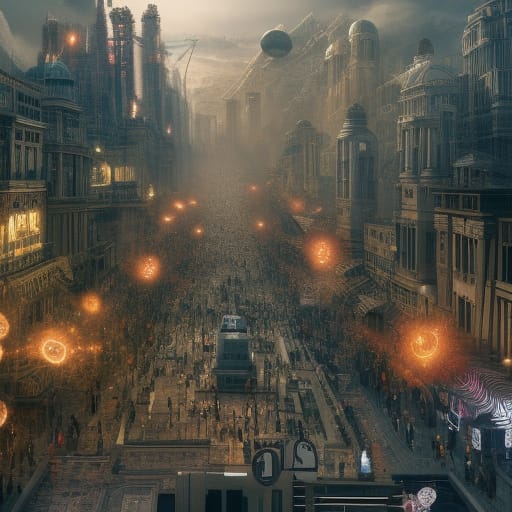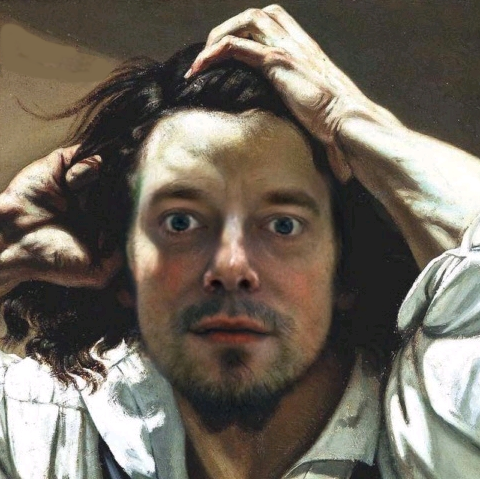For this first real post of 2023, I want to start with some sort of retrospective and talk about the future too. Not about my life in particular, but rather the state of social media and the internet at the turn of the year.
Let’s start with the elephant in the room right away:
Elon Musk bought Twitter and sent social media into a state of chaos.
Social media has always been this weird thing that we all love to hate and hate to love. Honestly, I envy people who can live without it. I know some. Personally, I can’t. I jumped on the MySpace and Facebook bandwagons as soon as I heard of them, 18 years ago, and never looked back since.
It may come from the fact that uprooted people like me have weird social lives.
When you spend your adult life in seven cities that are spread over three countries on three continents, you have friends all over the world (especially because quite a few of them are as mobile as you), and the older you get, the fewer friends you have where you are and the more where you are not.
Social media has been an invaluable tool for people like me to stay in touch with our loved ones. And of course, the more time I spend on social media, the more friends I make there. Some are real friends, not just people I speak with, despite never having met them in person. If you’re heavily online like me, you know what I mean.
I think we can say that my social life is online these days. Between raising kids and the pandemic, I even socialize with the friends that I have here on social media more often than offline these days.
For the most part, I have managed to avoid the most toxic aspects of the thing: starting my online social life on the 1990s forums where we regularly had very heated arguments over nothing, taught me how to mostly stay away from these behaviors nowadays.
It’s not all good. The more time I spend on social media, the less time I spend doing more useful things. Having an online social life there is great, but it is also much more time-consuming than having a “regular” social life.
Am I addicted to social media? Well, while I usually don’t have an addictive nature, I’m afraid I am addicted to them. Or at least, I’m addicted to the social interactions that social media is allowing me to have. It’s an addiction, but it’s also a necessity if I don’t want to lose touch with some of my best friends. So, it’s a more complex situation than it looks at first sight.

For most of my social media life I was mostly a Facebook user (and if you are careful with whom you interact there – only friends and people sharing the same interests – it’s not the hellhole that some people think it is). However, in recent years, I have used Twitter more and more. At first, I found the format frustrating, but I learned to like it and make the most of it. While Facebook remains the place where I interact with the friends that I have met elsewhere (offline or on the forums of yesteryear), Twitter became the place to talk with anyone about things. Any “thing.” All the “things.” As it also doubles as an amazing news source (as every news outlet has a Twitter account these days.) It really became a gate to the outside world more than any other online tool. Even more so because here, in Japan, the “outside world” is often an abstract concept for the local population.
So yes, Twitter was the place to be for the past few years.
And then, shit happened.
Musk bought Twitter!
I will not go into details about the whole thing, it’s been covered in length by many people.
The result is that the future of every decent person who uses Twitter is uncertain, basically. While my timeline hasn’t been invaded by trolls yet (by the way, use the “Latest Tweets” timeline, not the “Home” aka algorithmic timeline if you want to have a better Twitter experience), we know it’s only a matter of time before it becomes unusable. Once again, if you care about the issue, you know what I’m talking about.
As I already had a Mastodon account and as many people decided to move there, I became active there. And I love it.
At first, it was just some sort of lifeboat to stay in touch with as many Twitter contacts as possible in case things go south too quickly with Twitter. Soon, I found out that I really love Mastodon for many reasons. And that made me think of the state of social media and of the internet in general.
See, Mastodon is not owned by anyone. Everyone can set up a Mastodon server, and users can join pretty much any server or even move from one server to another if necessary. People who are confused by this, think of Mastodon as something closer to e-mail in the way it’s organized (even if its closer to Twitter in the way we use it). And using it really gave me late 1990s, and early 2000s vibes. You know, back when the internet was not owned by billionaires and giant companies. We all helped create these monsters because they were convenient, but in the process, we destroyed what made the internet a truly amazing and revolutionary place.
Don’t you think it’s time we bring the internet back to its roots? That it becomes again what it was supposed to be?
Musk buying Twitter will bring a lot of problems, and will for sure threaten democracy, especially in the US. But maybe it was the electroshock we all needed to realize that handing our online lives to people who don’t necessarily have the best of intentions was not a great idea.
The Twitter buyout was the sign we needed to realize that we need to take our internet lives back into our own hands.
And yes, I think Mastodon is the right answer to Twitter. Not other new social networks who – if they become successful – will create the same issues that already exist with current networks (looking at you, Post.News, and a few others). We need to take back our internet destinies into our own hands, and we need the proper tools for that.
As you may have heard, Mastodon is part of something much larger called the Fediverse.
I haven’t explored it much just yet, but there are tools similar to Mastodon (i.e. decentralized but compatible with each other) to replace things like Instagram, Facebook, and more.
We don’t have to use all of them at once. We all have different needs. For, example, I don’t really care about Instagram, so I don’t myself using Pixelfed. I don’t really see how I can convince most of my Facebook friends to move elsewhere (Friendica) unless something like Musk buying it happens. I’m not talking much about it here, but Meta (Facebook’s parent company) is not doing well at all. It’s losing billions of dollars over that silly Metaverse project that nobody seems to care about except Zuckerberg.
We may not need all the Fediverse right now, but it’s good to know it’s there, and using it more and more should be the way from now on.
Also, another great thing about Mastodon and the Fediverse, in general, is that not only it’s not owned by one person in particular, but also, it’s not based and biased toward one particular country or region. Until now, all major social media were invented in the US and were American companies. Not Mastodon and not the Fediverse. While it’s less and less true (because of the Twitter migration), until recently most Mastodon users were NOT American. Americans have to adapt to not being the center of things there. I see that as a good thing for everyone, Americans and non-Americans alike.
So yes, if you haven’t made the jump yet, I really advise you to get started with Mastodon.
I already wrote this piece to help you get started (it may need to be updated). If you have any questions and need more help, don’t hesitate to use the comments for this
And if you’re already there, you should follow me. I currently use the following accounts:
- @[email protected] exclusively in French.
- @[email protected] it’s my “serious” account, where I mostly talk about education, my corner of Japan, and various “serious” topics (climate, Covid, etc).
- @[email protected] I don’t want to say that it’s my shitposting account, but there is some involved in the process. Let’s say that it’s my generalist account where I talk about pretty much everything else. It’s meant to be about culture, but I post about much more than that.
Yes, if you know me, you know I’m plagued with this condition of creating too many accounts for things. It partly stems from having to juggle French and English online, but also because I like to keep certain parts of my life separate online. Don’t we all do that offline? Why not online? But it’s more time-consuming to do so. Didn’t I mention trying to fight this addiction?

So, yes, while social media is not dead, there’s a good chance that 2023 is the year when the social media landscape will drastically change.
What else will change?
The return of blogging?
Blogging has been on the decline in the past few years (I’m talking real blogging, like here, not internet marketers trying to make money with more or less automated fake blogs). Could this social media upheaval signal a return to blogging in one form or another? I have no idea, but I sure hope so. I know that being more active on social media is one of the reasons I’ve been less active on my blogs. I plan on inverting this tendency as one of my resolutions for 2023. Reducing the number of blogs I run recently is part of this process.
Will more people return to their dormant blogs? I’m hearing so. Will they follow suit? We’ll see. Will people start blogging? I’m not sure, nowadays, newsletters are all the rage.
What about Newsletters?
One other sign that social media is changing is the rise in popularity of newsletters and the return of long-form text online (like this one? is anyone still reading?)
I loved the idea as soon as I became aware of sites like Substack, Revue, or Ghost. They had a lot of what made blogs fun and attractive in the first place, but with the extra advantage of being more user-friendly on the writer’s side, and focusing on having subscribers, not just readers.
Over the years, blogging moved away from subscribers (the fact that RSS never really became mainstream didn’t help) and focused more on SEO and search engines. It’s a shame. When I write, I’d rather have fewer regular readers than a lot of one-time readers.
I started becoming more and more interested in these newsletter services. I tried Revue and Substack and quickly became a fan of Substack.
Originally, I only wanted to use it to inform people of new content on my blogs and a few extra things, but I soon started using it as a blog (basically serving the same purpose as this current blog). This blog doesn’t have much of a readership, whereas I managed to gather all my previous subscribers on Substack and that was quite an interesting number of people.
However…
And I think I’ll stop here, the Substack situation probably deserves its own post, and I hope that you all will read it (I’m not sure how many people are still reading this current post that’s already too long.
To be continued…
Follow me here and there:
If you found this post useful, why don’t you buy me a coffee?
Discover more from liminal web
Subscribe to get the latest posts sent to your email.


